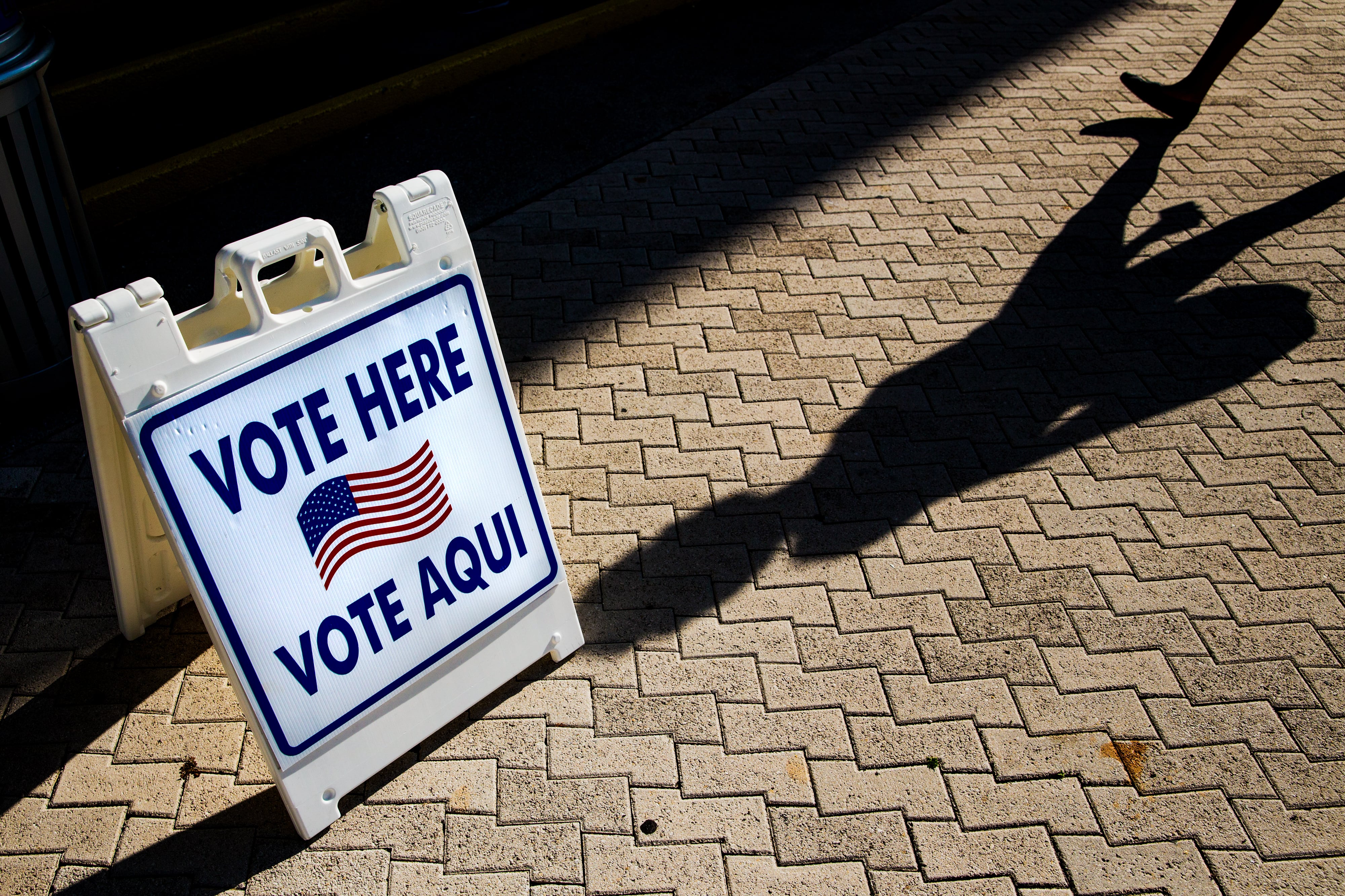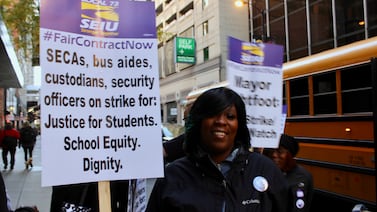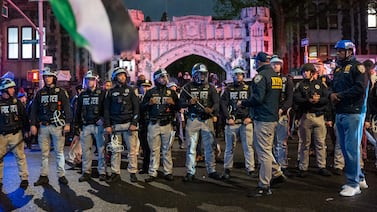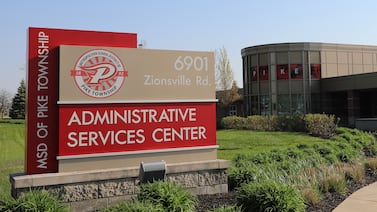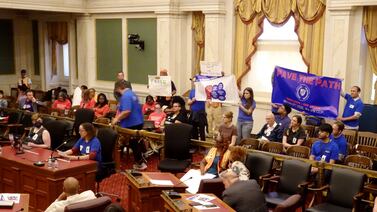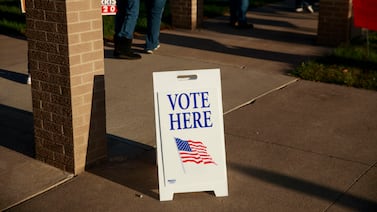Thirteen candidates have filed to run for four open seats on the Denver school board in November. Though a majority of the seven board seats are up for grabs, the election is unlikely to shift the balance of power away from members backed by the teachers union.
The candidates include Denver Public Schools parents, graduates, and educators. Several are former Denver teachers or administrators, and another works as a community liaison at a high school. Board policy does not allow district employees to serve on the board. In the past, district employees elected to the board have resigned from their jobs to serve.
(One candidate, Andrea Mosby, withdrew her candidacy in October. Her name will still appear on the ballot, but votes for her will not count.)
Of the four open seats, one is sought by an incumbent running for re-election: Carrie Olson, a former Denver teacher and current president of the board. Two other seats are vacant because board members Jennifer Bacon and Angela Cobián declined to run for a second term. The fourth seat is open because Barbara O’Brien is ineligible to run again due to term limits.
School board elections are held every two years, with the number of open seats each election varying from three to four. Since a historic “flip” in 2019, when three union-backed candidates won, members aligned with the union have held a 5-2 majority.
The two board members not backed by the union, Cobián and O’Brien, will be leaving this year. The three union-backed members elected in 2019 — Tay Anderson, Scott Baldermann, and Brad Laurvick — will remain on the board for another two years.
If even just one of four open seats this year is won by a union-endorsed candidate, union-backed members will retain their majority. In past elections, union-backed candidates have faced off against candidates favored by education reform organizations, which are more supportive of independent charter schools and school choice than the union.
The Denver Classroom Teachers Association has endorsed four candidates: Scott Esserman for the at-large seat, Xóchitl “Sochi” Gaytán in District 2, board President Olson in District 3, and Michelle Quattlebaum in District 4.
The education reform advocacy group Stand for Children Colorado has endorsed Vernon Jones Jr. for the at-large seat, Karolina Villagrana in District 2, and Olson in District 3. Stand has not yet endorsed a candidate for the District 4 seat.
Another education advocacy group, TEN Collective Impact, endorsed Jones for the at-large seat, Villagrana in District 2, and Gene Fashaw in District 4. It did not endorse a candidate in District 3. TEN co-founder Nicholas Martinez is married to Villagrana, who said TEN’s endorsements were made by Denver parents involved in the organization, not its staff.
Board members are elected to four-year terms, and the next four years in Denver Public Schools will be important. The new board members will oversee a relatively new superintendent, Alex Marrero, who took the top job in July. The board will also write a new strategic plan for the district after the previous one, the Denver Plan 2020, expired last year.
The board will make decisions on critical issues facing the district, including whether to close or consolidate small schools as enrollment continues to decline. And it will oversee ongoing efforts to improve education for Black students in Denver and to redefine school safety and discipline after the removal of police officers from some middle and high schools.
In addition, the board will be responsible for signing off on how to spend millions of dollars in federal coronavirus relief money, approving new autonomous charter or innovation schools, and reviewing existing ones. Decisions about charter and innovation schools have long been controversial. That’s likely to continue, though charter expansion has slowed in recent years.
Denver Public Schools is Colorado’s largest school district, serving about 90,000 students. About 52% of students are Hispanic, 25% are white, 14% are Black, and 3% are Asian. More than 60% qualify for subsidized meals, and 36% are learning English as a second language.
The district’s annual budget is about $1.2 billion, and it employs about 15,000 people.
Past Denver school board elections have been contentious and expensive, even though serving on the board is a volunteer position. Spending by candidates and outside groups in the last Denver school board election, in 2019, topped $2 million.
The election is scheduled for Nov. 2. In alphabetical order, the candidates who filed with the Denver Office of the Clerk and Recorder to run are:
At-large, representing the entire city
Marla Benavides
Benavides describes herself in a campaign video as a home-school mom concerned about literacy rates in the district. She sells books as an independent contractor.
Scott Esserman
Esserman is a Denver Public Schools parent who previously worked as a teacher in public and private schools. He volunteers as the chair of the district’s accountability committee.
Vernon Jones Jr.
Jones is a Denver Public Schools parent and executive director of the Northeast Denver Innovation Zone, a group of autonomous schools in the district. He previously ran for a school board seat in 2009 but did not win. Update: Jones resigned as head of the innovation zone on Oct. 8.
Jane Shirley
Shirley is a former teacher and principal in neighboring Aurora Public Schools and the former head of a school leadership program. She now works at a management consulting firm.
Nicky Yollick
Yollick is a community activist who has worked on Democratic political campaigns and helped found several Denver-based education advocacy groups.
District 4, representing northeast Denver
Gene Fashaw
Fashaw is a Denver Public Schools graduate who worked until recently as a math teacher at a Denver charter school. He now teaches at a charter school outside Denver.
Andrea Mosby
Chalkbeat could not find a campaign website or social media page for Mosby. Attempts to contact her were unsuccessful. Update: Mosby has withdrawn her candidacy. Her name will still appear on the ballot, but votes for her will not count.
Michelle Quattlebaum
Quattlebaum is a Denver Public Schools graduate whose three children graduated from George Washington High School. She works as the family and community liaison there.
Jose Silva
Silva is a Denver Public Schools graduate and executive director of the Colorado Association of Infant Mental Health. He twice ran unsuccessfully for Denver school board, in 2003 and 2007.
District 3, representing central-east Denver
Mike DeGuire
DeGuire is a former teacher and principal at schools in Denver and other local districts. He now coaches school principals in Denver and elsewhere and works as a Realtor.
Carrie Olson
Olson worked for decades as a Denver teacher and was first elected to the school board in 2017. She has been president of the board for the past two years.
District 2, representing southwest Denver
Xóchitl Gaytán
Gaytán is a Denver Public Schools graduate and current parent. She works as a Realtor and previously ran for the school board in 2017 but did not win.
Karolina Villagrana
Villagrana has worked as a teacher and administrator in district-run and charter schools in Colorado and other states. She now works for Camelback Ventures, an organization that supports women entrepreneurs and entrepreneurs of color.
Update: An earlier version of this story listed Jorge Hernández Arjona as a candidate for the at-large seat. He did not turn in enough verified signatures to make the ballot.
Second update: This story has been updated to reflect that Andrea Mosby withdrew her candidacy, and that Jones resigned as executive director of the Northeast Denver Innovation Zone. It has also been updated with additional information about endorsements.


